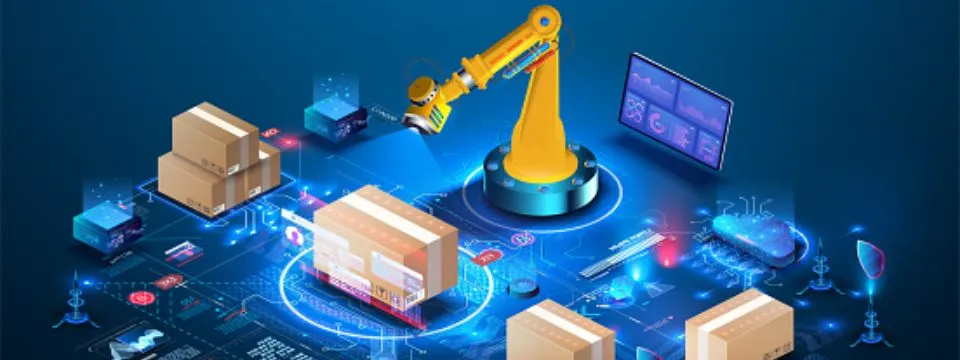Best Practices for Effectively Managing Offshore Teams in 2024
Author: Laila Meraj
23 October, 2024
In today’s globalized business landscape, offshore teams have become an integral part of many organizations. While offshore teams offer numerous benefits, such as cost savings, access to diverse talent pools, and 24/7 operations, they also present unique challenges. Managing a team across different time zones, cultures, and languages requires a specific set of skills and strategies.
This blog will explore the best practices to overcome the challenges in managing offshore teams in 2024, helping you foster a productive and cohesive global workforce.

Understanding the Challenges
Before diving into the solutions, it’s crucial to recognize the common challenges faced when managing offshore teams:
- Communication barriers
- Cultural differences
- Time zone disparities
- Lack of face-to-face interaction
- Technology and infrastructure issues
- Different work ethics and expectations
- Building trust and team cohesion
- Maintaining consistent quality standards
- Aligning with company culture and values
- Managing performance and productivity remotely
- Cultivate Leadership Skills for Remote Management
- Address Language Barriers Effectively
- Manage Conflict Constructively
- Prioritize Work-Life Balance
- Foster Innovation and Creativity
Now, let’s explore the best practices to address these challenges and create a thriving offshore team environment.
Establish Clear Communication Channels and Protocols
Effective communication is the foundation of successful offshore team management. To overcome communication barriers:
- Implement a multi-channel approach: Utilize a combination of tools such as email, instant messaging, video conferencing, and project management platforms to cater to different communication needs.
- Set clear communication guidelines: Establish protocols for response times, preferred communication methods for various situations, and escalation procedures.
- Encourage over-communication: In a remote setting, it’s better to err on the side of too much communication rather than too little.
- Use visual aids: Incorporate diagrams, screenshots, and video tutorials to overcome language barriers and ensure clear understanding of complex ideas.
- Implement regular check-ins: Schedule daily or weekly team meetings to keep everyone aligned and address any issues promptly.
Bridge Cultural Gaps Through Education and Sensitivity
Cultural differences can lead to misunderstandings and conflicts. To foster a culturally inclusive environment:
- Provide cultural awareness training: Educate team members about each other’s cultures, including work styles, communication norms, and national holidays.
- Celebrate diversity: Encourage team members to share aspects of their culture, fostering mutual understanding and respect.
- Be mindful of cultural nuances: Pay attention to differences in communication styles, decision-making processes, and attitudes towards hierarchy.
- Adapt your management style: Be flexible in your approach to accommodate cultural expectations while maintaining overall team cohesion.
- Create a shared team culture: Develop common values and practices that transcend individual cultural backgrounds.
Navigate Time Zone Differences Effectively
Working across different time zones can be challenging, but with the right strategies, you can turn it into an advantage:
- Establish core overlap hours: Identify a timeframe when all team members can be available for real-time collaboration.
- Rotate meeting times: Alternate meeting schedules to distribute the burden of off-hours work fairly among team members.
- Use asynchronous communication tools: Leverage platforms that allow for effective communication even when team members are offline.
- Plan ahead: Schedule important discussions and deadlines with time zone differences in mind.
- Be flexible with work hours: Allow team members to adjust their schedules when necessary to accommodate global collaboration.
Foster Personal Connections in a Virtual Environment
Building relationships remotely requires extra effort. To create a sense of camaraderie:
- Encourage virtual social interactions: Organize online team-building activities, virtual coffee breaks, or informal chat channels.
- Share personal updates: Start meetings with brief personal check-ins to help team members connect on a human level.
- Use video calls whenever possible: Seeing faces and expressions helps build stronger connections and reduces misunderstandings.
- Create opportunities for in-person meetings: When feasible, arrange for team members to meet face-to-face occasionally.
- Recognize and celebrate achievements: Regularly acknowledge individual and team successes to boost morale and team spirit.
Invest in Reliable Technology and Infrastructure
To ensure smooth operations, it’s crucial to have robust technological support leveraging Machine Learning and Artificial Intelligence technology:
- Provide necessary hardware and software: Ensure all team members have access to the tools they need to perform their jobs effectively.
- Implement secure data sharing solutions: Use cloud-based platforms with strong security measures to facilitate safe file sharing and collaboration.
- Offer IT support across time zones: Ensure technical issues can be addressed promptly, regardless of when they occur.
- Train team members on tools: Provide comprehensive training on all technology platforms used by the team.
- Have backup plans: Develop contingency plans for technology failures to minimize disruptions.
Align Work Ethics and Expectations
Different cultures may have varying approaches to work. To create a cohesive team:
- Clearly define roles and responsibilities: Ensure each team member understands their specific duties and how they contribute to overall goals.
- Set clear performance metrics: Establish objective measures of success that apply uniformly across the team.
- Document processes and best practices: Create comprehensive guides to standardize work procedures and quality expectations.
- Address issues promptly: Don’t let small discrepancies in work ethics escalate into larger problems.
- Lead by example: Demonstrate the work ethic and commitment you expect from your team.
Build Trust Through Transparency and Accountability
Trust is essential for remote team success. To foster a high-trust environment:
- Be transparent about decision-making: Share the reasoning behind important decisions and involve team members in the process when appropriate.
- Set clear goals and deadlines: Ensure everyone understands what’s expected of them and by when.
- Use project management tools: Implement tools that allow for transparent tracking of tasks and progress.
- Encourage open feedback: Create a culture where team members feel safe sharing their thoughts and concerns.
- Follow through on commitments: Consistently deliver on your promises to build credibility with your team.
Maintain Consistent Quality Standards
Ensuring consistent quality across different locations can be challenging. To maintain high standards:
- Develop comprehensive quality guidelines: Create detailed documentation outlining quality expectations for all aspects of work.
- Implement regular quality checks: Establish a system for reviewing work and providing constructive feedback.
- Encourage peer reviews: Foster a culture of collaboration where team members review each other’s work.
- Provide ongoing training: Regularly update team members on best practices and industry standards.
- Recognize and reward quality work: Incentivize team members to consistently deliver high-quality output.
Align Offshore Teams with Company Culture and Values
Integrating offshore teams into the broader company culture is crucial for long-term success:
- Clearly communicate company values: Ensure all team members understand and align with the organization’s mission and values.
- Include offshore teams in company-wide initiatives: Involve remote team members in broader organizational activities and decisions.
- Share company news and updates regularly: Keep offshore teams informed about company developments to foster a sense of belonging.
- Provide opportunities for career growth: Offer training and advancement opportunities to offshore team members.
- Recognize contributions: Highlight the achievements of offshore teams to the broader organization.
Effectively Manage Performance and Productivity Remotely
Monitoring and improving performance in a remote setting requires a tailored approach:
- Set clear, measurable objectives: Use frameworks like OKRs (Objectives and Key Results) to align individual goals with team and company objectives.
- Conduct regular performance reviews: Schedule frequent check-ins to discuss progress, challenges, and areas for improvement.
- Use productivity tracking tools judiciously: While monitoring tools can be helpful, use them transparently and focus on outcomes rather than micromanaging activities.
- Provide continuous feedback: Don’t wait for formal reviews to offer guidance and recognition.
- Offer resources for professional development: Support team members in expanding their skills and knowledge.
Cultivate Leadership Skills for Remote Management
Managing offshore teams requires a unique set of leadership skills:
- Develop emotional intelligence: Enhance your ability to understand and manage emotions, both your own and those of your team members.
- Practice active listening: Pay close attention to both verbal and non-verbal cues during virtual interactions.
- Be adaptable: Flexibility is key when dealing with diverse teams and unexpected challenges.
- Empower team members: Delegate responsibilities and trust your team to make decisions.
- Focus on outcomes: Judge performance based on results rather than hours worked or processes followed.
Address Language Barriers Effectively
When working with multilingual teams, language differences can pose significant challenges:
- Establish a common working language: While respecting diversity, agree on a primary language for business communication.
- Provide language training: Offer language courses to team members to improve overall communication.
- Use simple, clear language: Avoid idioms, colloquialisms, and complex jargon that may not translate well.
- Encourage clarification questions: Create an environment where team members feel comfortable asking for clarification.
- Utilize translation tools: When necessary, use reliable translation software to bridge language gaps.
Manage Conflict Constructively
Conflict can be particularly challenging in remote, multicultural teams:
- Address issues promptly: Don’t let conflicts fester; deal with them as soon as they arise.
- Practice cultural sensitivity: Be aware of how different cultures may perceive and handle conflict.
- Use video calls for difficult conversations: Face-to-face interaction, even if virtual, can help de-escalate tensions.
- Focus on facts and solutions: Encourage team members to focus on objective information and potential resolutions rather than personal grievances.
- Mediate fairly: When conflicts arise between team members, act as an impartial mediator to find mutually beneficial solutions.
Prioritize Work-Life Balance
Maintaining a healthy work-life balance can be challenging in global teams:
- Respect off-hours: Avoid contacting team members outside of their working hours unless absolutely necessary.
- Encourage breaks and time off: Promote the importance of rest and relaxation to prevent burnout.
- Be mindful of local holidays: Respect and plan around the different holiday schedules of your global team.
- Support flexible scheduling: Allow team members to adjust their work hours to balance personal and professional responsibilities.
- Lead by example: Demonstrate good work-life balance practices in your own schedule.
Foster Innovation and Creativity
Geographical distance shouldn’t hinder innovation:
- Create virtual brainstorming sessions: Use digital whiteboarding tools to facilitate collaborative idea generation.
- Encourage cross-cultural perspectives: Leverage the diverse backgrounds of your team to approach problems from different angles.
- Implement an idea-sharing platform: Use tools where team members can submit and discuss innovative ideas asynchronously.
- Recognize and reward creativity: Establish a system to acknowledge and implement innovative ideas from team members.
- Provide resources for experimentation: Allow time and resources for team members to explore new concepts and technologies.
Conclusion
Managing offshore teams in 2024 presents unique challenges, especially in the software development field, but with the right strategies, it can lead to increased productivity, diversity of thought, and global competitiveness. By focusing on clear communication, cultural understanding, and leveraging technology, you can build a cohesive and high-performing offshore team.
Remember, successful offshore team management is an ongoing process that requires continuous effort, adaptation, and learning. As you implement these best practices, remain open to feedback and be willing to adjust your approach based on the specific needs of your team. Xorbix Technologies can guide you in implementing these best practices and overcoming the unique challenges of managing remote teams.
Read more related to this blog:




